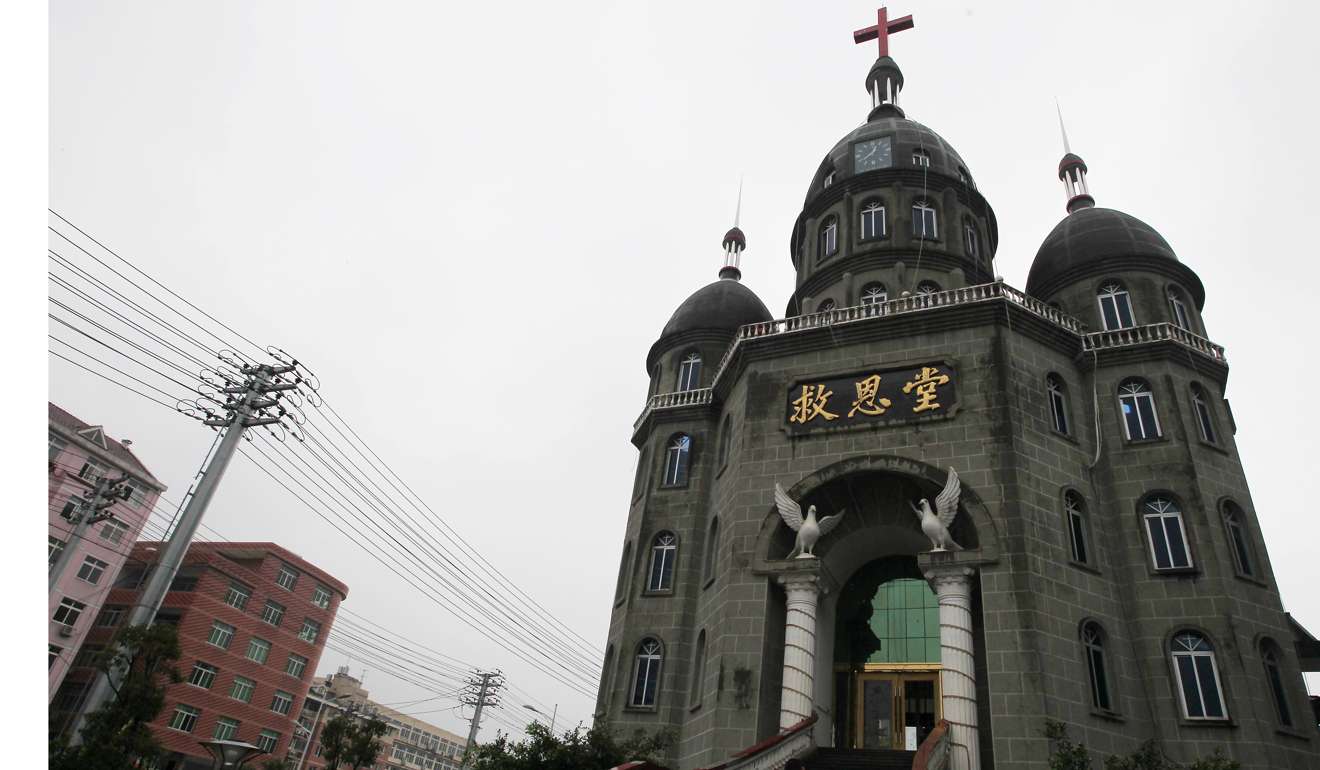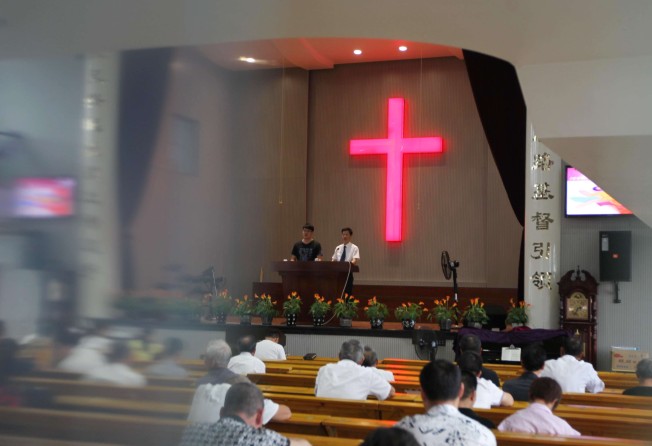
In ‘China’s Jerusalem’, ‘anti-terror cameras’ the new cross for churches to bear
New campaign comes just three years after crosses were ordered removed from the roofs of houses of worship

Christians and government officials have come to blows over demands that churches in a city known as “China’s Jerusalem” install surveillance cameras for “anti-terrorism and security purposes”.
The Zhejiang government issued the orders to churches in Wenzhou late last year and began implementing them before the Lunar New Year holiday in January.
The confrontation with the city’s Christian community, which is estimated to number roughly one million, comes three years after the authorities ordered the removal of crosses on top of church buildings, on the grounds that they were illegal structures. Opponents called the 2014 campaign religious persecution.
“Government officials came to the churches and put up cameras by force. Some pastors and worshippers who didn’t agree to the move were dragged away,” a Christian in Wenzhou said, without specifying when the conflict occurred.
“Some people needed to be treated in hospital after fighting the officials.”
Pastor Yan Xiaojie, a missionary in the city, said the cameras had been installed in a number of churches, reminding him of the “cross demolitions” in 2014.
During that controversial campaign, which made international headlines and drew criticism from religious rights organisations around the world, about 360 crosses were removed and one church was demolished, according to China Aid, a US-based religious rights group.

Wenzhou pastor Huang Yizi was detained and then jailed for a year in 2015 for protesting against the cross removals.
Huang said he had been closely monitored since informing overseas media about the installation of the cameras last week.
China Aid said churches were told to install cameras at gates, rostrums, offering boxes and other places, despite strong opposition from churchgoers who claimed the surveillance infringed their privacy.
An official notice circulated widely among church members at the end of last year said that all churches would have to install the cameras, Christians said.
One churchgoer said officials had installed the cameras one by one but they had yet to be set up in his place of worship.
“I don’t support the government’s decision and I hope they will not put monitoring equipment inside our church,” the churchgoer said.
“We Christians do good deeds and we don’t do anything to endanger the public. I don’t understand why the government wants to monitor us.
“The government’s pressure on us will not deter us from our beliefs and will not affect the proliferation of our religion,” the churchgoer said.
“The tougher the persecution, the more people will be encouraged to follow the religion.”
Many other missionaries declined to comment on the camera orders due to the sensitivity of the issue.
Wenzhou, a manufacturing hub of eight million people, has the highest concentration of Christians on the mainland. Crosses from more than 2,000 churches dotted the city’s skyline before the 2014 campaign to bring them down.
The depth of opposition to the forced installation of the surveillance cameras was reflected in a widely shared article written and posted online by Wenzhou Christian Liao Enxin.
Wenzhou’s surveillance camera drive comes amid tighter controls on religious activities across the country.
Last week, the far western region of Xinjiang – home to more than 10 million mostly Muslim Uygurs – passed new rules targeting what it called religious extremism. The rules, which took effect on Saturday, prohibit such “manifestations of extremism” as wearing veils or “abnormal” beards, refusing to watch state television or listen to state radio, or preventing children from receiving “national education”, according to the official news website News.ts.cn.
Under the rules, special task forces to curb extremism would be set up by regional, prefectural and county governments and local leaders would be evaluated annually on their achievements on the matter.